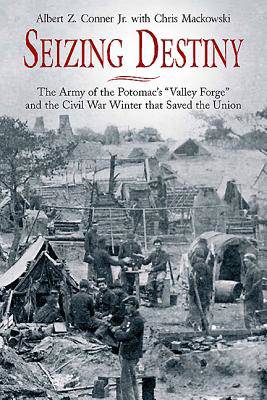
Bedankt voor het vertrouwen het afgelopen jaar! Om jou te bedanken bieden we GRATIS verzending (in België) aan op alles gedurende de hele maand januari.
- Afhalen na 1 uur in een winkel met voorraad
- In januari gratis thuislevering in België
- Ruim aanbod met 7 miljoen producten
Bedankt voor het vertrouwen het afgelopen jaar! Om jou te bedanken bieden we GRATIS verzending (in België) aan op alles gedurende de hele maand januari.
- Afhalen na 1 uur in een winkel met voorraad
- In januari gratis thuislevering in België
- Ruim aanbod met 7 miljoen producten
Zoeken
Seizing Destiny
The Army of the Potomac’s “Valley Forge” and the Civil War Winter That Saved the Union
Albert Z. Conner Jr., Chris Mackowski
Hardcover
€ 32,45
+ 64 punten
Omschrijving
Depression. Desertion. Disease. The Army of the Potomac faced a trio of unrelenting enemies during the winter of 1863. Following the catastrophic defeat at the battle of Fredericksburg in December of 1862, the army settled into winter quarters—and despair settled into the army.
Specificaties
Betrokkenen
- Auteur(s):
- Uitgeverij:
Inhoud
- Aantal bladzijden:
- 480
Eigenschappen
- Productcode (EAN):
- 9781611211566
- Verschijningsdatum:
- 11/05/2016
- Uitvoering:
- Hardcover
- Afmetingen:
- 237 mm x 161 mm
- Gewicht:
- 662 g

Alleen bij Standaard Boekhandel
+ 64 punten op je klantenkaart van Standaard Boekhandel
Beoordelingen
We publiceren alleen reviews die voldoen aan de voorwaarden voor reviews. Bekijk onze voorwaarden voor reviews.









